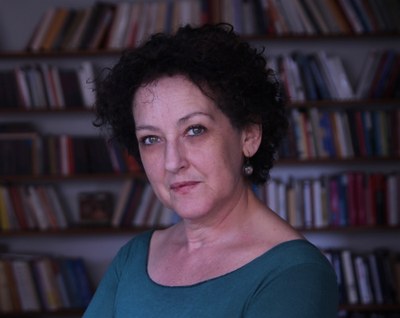Aktuelle Veranstaltungen
Wintersemester 2020/21
Gesprächsreihe: "Grenzenlose Ungewissheit - Gespräche über Grenzen und Pandemie"
Authoritarianism, Racism and Social Boundaries in the US
A conversation with John Abromeit
In the United States, the extremely worrying course of the pandemic seems to have become entangled with the intensification of racist practices of social segregation. This conversation with John Abromeit is about the question of how this specific crisis constellation of the permanence of racism and social boundaries is at the same time characterized by an upsurge of authoritarian forms of acting, which have reached a hitherto unknown dominance. Here the question arises to what extent a theoretical concept that has dealt decisively with the analysis and critique of the "authoritarian personality", the classical Critical Theory of Society, can also be productive in order to better understand and analyze the current forms of authoritarianism, not only in the USA. John Abromeit is Associate Professor in History, at the Buffalo State University of New York.He specialized on Modern European Intellectual History, German History, Critical Social Theory. His book Max Horkheimer and the Foundations of the Frankfurt School.
|
|
Medikalisierung der Grenzen
Eröffnung der Gesprächsreihe mit Frau Dr. Sevasti Trubeta
Unter den gegenwärtigen Bedingungen hat sich auch die Erfahrung von Grenzen in den verschiedensten Ausprägungen und in ganz unterschiedlicher Form einschneidend in allen gesellschaftlichen Segmenten verändert. In einer Reihe von Gesprächen möchten wir diese Veränderungen im Hinblick auf das Stichwort Grenze reflektieren. Dabei geht es nicht in erster Linie um Staatsgrenzen allein, sondern auch um gesellschaftliche Abgrenzungsprozesse, Dynamiken von Zuordnung und Ausgrenzung in Zeiten neuer Ungewissheit, wie sie zuvor im privilegierten Teilen Europas lange nicht mehr gekannt wurden. Es geht um die Rekonfiguration von Mental Maps, um Mobilität und deren neue Grenzen. All diese Fragen werden wir in ca. zwanzig-minütigen Gesprächen thematisieren.
Wir eröffnen die Reihe mit Dr. Sevasti Trubeta.

Sevasti Trubeta vertritt eine Professur für Diversity Studies an der Hochschule Magdeburg-Stendal.
Ihre Forschungsschwerpunkte sind insbesondere Migration; Flucht; Border Studies, Rassismus und Biopolitik. Ein besonderer Fokus ihrer Forschung liegt auf der Konstruktion sozialer Subjekte mittels körperbezogener und Gesundheits- bzw. Krankheitsdiskurse.
Von 2009 bis 2016 war Sevasti Trubeta Assistenzprofessorin, Institut für Soziologie, Universität der Ägäis Griechenland in Mytilini auf Lesbos und kennt somit die Entwicklung der Situation von Flüchtenden aus eigener Anschauung. Dort hat sie sich auch ganz praktisch engagiert. Sevasti Trubeta war Mitgründerin und bis 2015 Koordinatorin des Antirassistischen Monitoring der Universität der Ägäis und auch Mitglied der Einbürgerungskommission (Präfektur der Nördlichen Ägäis (Griechenland), wo sie die Greek National Commission for Human Rights/NCHR vertrat.
In den Jahren zuvor war sie wissenschaftliche Mitarbeiterin und Lehrbeauftragte, Osteuropa-Institut, Freie Universität Berlin, wo Sevasti Trubeta an ihrem DFG-Drittmittelprojekt: Daraus hervorgegangen ist 2013 ihr viel beachtetes Buch Physical Anthropology, Race and Eugenics in Greece 1880s-1970s. (Leiden & Boston: Brill Academic Publishers 2013).
Derzeit ist eine weitere sehr interessante und aktuelle Publikation im Erscheinen, die auch Anlass für unser Gespräch war: „Medicalising Borders: Selection, containment and quarantine since 1800“ bei Manchester University Press, das sie gemeinsam mit Christian Promitzer und Paul Weindling herausgibt.
Academia.edu Profil von Frau Dr. Trubeta
Cancelled
Due to international travel restrictions connected to the Sars Cov 2 Pandemic the Summerschool unfortunately had to be cancelled.
Borderless memory?
On the dynamics of b/ordering, remembrance and oblivion in the societies of the Balkans.
Interdisciplinary Summer-School, Ohrid, 6.-13.9.2020
| This summer school, supported by the German Academic Exchange Service (DAAD), which takes place in Ohrid and thus, almost in the center of the Balkans, is primarily aimed at young researchers and academics from this region: Northern Macedonia, Albania, Greece and Bulgaria. The town of Ohrid - situated on a triangle of countries and thus on borders - traditionally stands for the bridging of borders. This is also the main topic of our summer school: how borders are drawn and how they can be overcome. The focus is on how memories, past and history serve to construct closed communities, draw boundaries - and just as much to look on the possibilities to overcome boundaries by reflecting on the past, by analyzing how memories are narrated, how history is created. |


